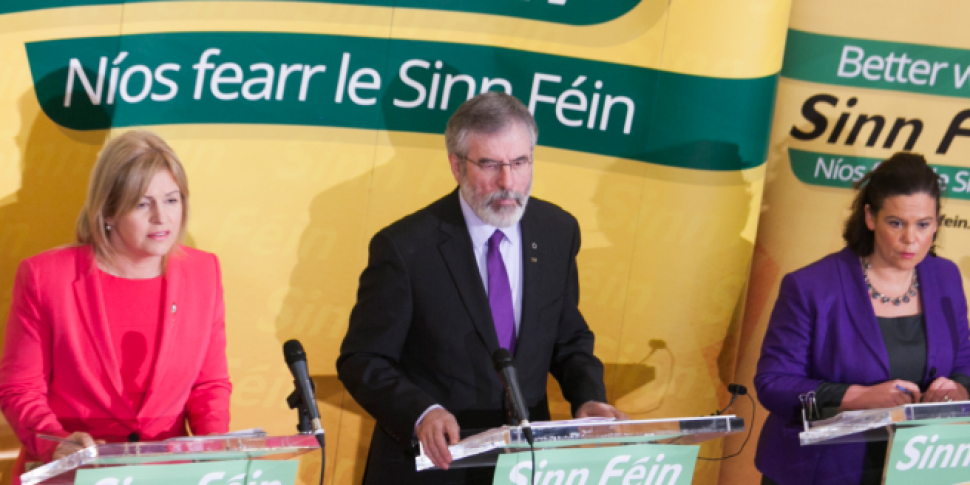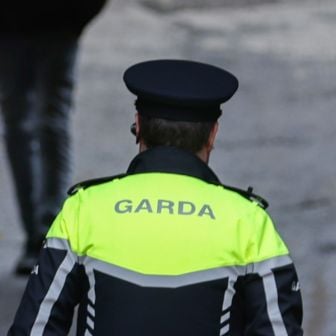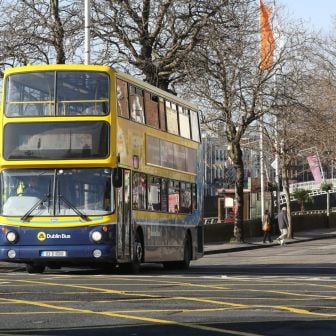The Royal Irish Academy (RAI) was the venue when Sinn Fein was the first of the four main parties to launch their manifesto.
Despite presenting a very detailed document, the opening stage of the proceedings was dominated by questions relating to the two gangland killings of the past few days. In particular Sinn Fein’s plan to abolish the Special Criminal Court in favour of trials by jury led to a stream of questions from the assembled media.
Is the return to juries for crimes of this nature feasible?
I suspect that if you are a potential juror then the answer would be a resounding no. The reality is that in the age of the internet it has never been as easy to track down everyday law abiding citizens. Who is going to risk intimidation or retaliation from the type of people who have no compunction in spraying the foyer of a hotel with automatic gunfire.
Sinn Fein are going nowhere with their proposal and are likely to cut off any potential advance in their quest for the middle class vote. That Gerry Adams has also linked the issue to the Thomas “Slab” Murphy case points towards an internal Sinn Fein/IRA demand rather than an altruistic quest for a change to the justice system.
What have they accepted?
In an overall context it is interesting that Sinn Fein has moved into same fiscal space as the other parties and now accepts that policies have to be costed and meet certain criteria.
They accept the accuracy of the official estimate of €8.6 billion and they believe that their proposals would add a further €2 billion to the pot. €1.7 billion of that coming from a net increase in taxes with the remainder coming from savings in public spending. However, just like the other parties a great deal is predicated on no significant downturn in the economy of which there is never a guarantee.
So what are the big promises?
Under the heading “Bringing fairness to the tax system” they propose to:
- Abolish the Local Property Tax which they claim will mean that 1.8 million homeowners will save an average of €244 per year.
- Scrap water charges saving a family of 2 adults €260 per year.
- Make the tax system progressive by removing workers earning under €19,572 from the USC net, benefiting some 277,000 employees.
- Ease the tax burden on the self-employed by moving towards the equalisation of the Self-Employed Tax Credit with the PAYE Tax Credit
As the manifesto does not actually do the costings I estimate them to be:
- The LPT proposal will cost €440 Million per year
- Scrapping water charges will cost a minimum of €470 Million per year
- Removing 277,000 from USC tax net would cost some €102 Million per year
Therefore these policies alone would cost a minimum of €1.1 Billion.
Minumum wage and Tax
They have promised to raise the minimum wage to €9.65 per hour which is an hourly increase of €0.50 over the current rate.
The problem with this is that employers who rely on minimum wage staff may consider staff reductions if they have very tight margins.
We will increase the minimum wage to €9.65 an hour @davidcullinane #GE16#BetterWithSF pic.twitter.com/9lYgZctNKq
— Sinn Féin (@sinnfeinireland) February 10, 2016
They have promised to create a new band of tax for those earning in excess of €100k per year. Every euro over this figure will be taxed at 7% which would result in a marginal tax rate of 59% for PAYE workers and 61% for self-employed.
The big question is will this deter people taking high end jobs when their skills would be more appreciated, certainly in terms of salary, in other countries. It is difficult to see this finding favour with the entrepreneurs who create wealth and jobs. It is also unlikely to entice home the most talented of our Diaspora.
They also compound this by introducing an additional Employers tax of 15.75% on salaries over €100k.
While it is difficult to get exact figures on the extra tax generated for the Exchequer it is estimated that it could amount to some €500 Million.
We support introducing a Living Wage and we'll legislate for Fair Hours contracts @Toibin1 #GE16 #BetterWithSF pic.twitter.com/mPaIXc65bZ
— Sinn Féin (@sinnfeinireland) February 10, 2016
They also plan to examine the possibility of a Wealth Tax and to raise the level of Betting Tax and introduce a Sugar Tax.
They will go for the old faithful of cutting the salaries of Government Ministers and all members of the Oireachtas plus senior civil servant and special advisors.
However all the new and increased tax proposals would fall well short of making the target of €1.7 Billion increase and also compensating for the €1.1 Billion in reduced taxes from LPT, water charges and USC.
While it is not specifically stated, one has to presume that the balance has to come from the additional tax return generated from the 250,000 extra jobs created under their proposals.
We will regulate the labour market to ensure that work pays @loreillysf #GE16 #BetterWithSF pic.twitter.com/usI6ED1mnE
— Sinn Féin (@sinnfeinireland) February 10, 2016
And the others...
Their big proposals for spending include Health at €3.3 billion, €2.3 billion on Housing, €1.9 billion on Education, €900 million on Social Protection and €850 Million on childcare.
The biggest share of the Health proposal is the introduction of a Universal Health Service for everyone in Ireland. They propose to extend free GP care and make prescription charges free for everyone. There will be an additional 6,600 frontline staff.
On housing, they propose to double the State housing stock to 200,000 by 2030 including 36,500 social houses by 2021. They will also link rent to inflation and investigate the removal of upwardly rental reviews.
On education, the big ticket promise is to reduce the pupil teacher ratio from 27-1 down to 20-1 over a period of time. This of course would necessitate a significant increase in infrastructure and staff.
Students’ fees would be abolished over the lifetime of the Government.
Retirement age would be restored to 65 and the number of contributions required for a full State pension would be halved to 260.
Childcare costs would be capped at €180 per week with a view to a further reduction to €150.
There is a call for referendums on Irish Unity, repealing the 8th Amendment, changing the electoral system to incorporate a list system and giving voting rights to the Diaspora and Northern Ireland residents.
What is the party's aim?
Overall, it is very much a manifesto aimed at the party's core support while also reaching out to those who previously supported the Labour Party.
They also clearly have one eye very firmly on their opponents of the hard left such as AAA-PBP and attempting to outflank them.
While it is a document that would find favour with parties who would consider themselves more centrist, the costings by the Department of Finance will make for interesting reading.
However it is the law and order issue that overshadows the manifesto and it is difficult to see the party expanding their very limited middle class base as long as the shadow of the gunman remains cast over them.









